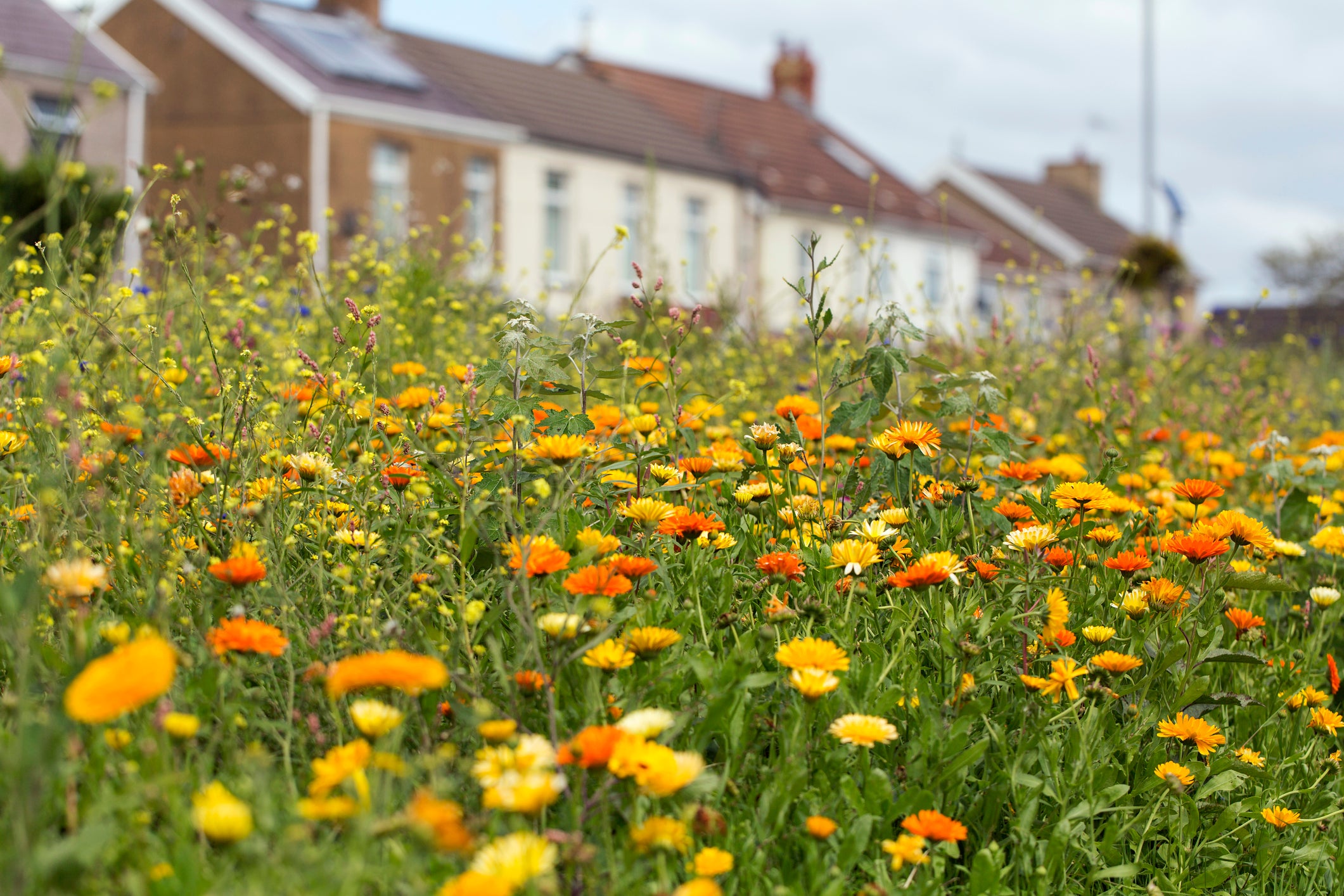Let gardens grow wild to save bees, says government
According to Greenpeace, around a third of our food directly relies on bees for pollination

Gardeners should let their lawns grow wild in a bid to preserve bee populations, the UK government has said.
“Bees and other pollinators are not just a welcome and much loved sight in our gardens, parks, villages and countryside – they are vital to a healthy environment, driving our economy and boosting biodiversity,” minister for the environment Rebecca Pow has said.
“Everyone can help them flourish by leaving patches of garden to grow wild, growing more flowers, cutting grass less often, not disturbing insect nests, and carefully considering how we use pesticides.”
Her comments come at the start of Bees’ Needs Week, an annual event coordinated by Defra to raise public awareness of the vital role bees and other pollinators play in our ecosystem.
The campaign brings together charities, businesses, conservation groups and academic institutions to inform gardeners, farmers and managers of urban green spaces of ways they can improve biodiversity.
The message reinforces that of the ‘no-mow’ movement, which has a dedicated month – No Mow May – to encourage flowers and pollinators to flourish in our green spaces, with at least 30 councils signing up to the campaign.
Mowing lawns can remove essential sources of food for pollinators, such as bees, whose existence is crucial in growing some of our favourite foods and improving crop quality.
Minimising the use of pesticides can also help boost soil health.
According to Greenpeace, around a third of our food directly relies on bees for pollination, with the majority of fruits, nuts and vegetables dependent on pollination by this furry flying insect.
In fact, pollinating insects are worth around £690m to the UK’s economy per annum, according to a study by the University of Reading.
Despite this, bees around the world are in major decline due to human activity, with a third of the UK wild bee population in decline.
The Woodland Trust said: “Bees are in decline on a global scale as they face many threats, from habitat loss to the use of toxic pesticides.”
Key areas of habitat loss in the UK include wildflower meadows, which have declined by 97 per cent across the country since the 1930s, and also native forest and woodlands.
Mr Dunn, CEO of Plantlife, which organises No Mow May, said: “Cutting grass less and later is great for nature. A more relaxed approach to mowing the lawn benefits plants, pollinators, people and planet.
“Not only do wild flowers flourish, creating a botanical bounty for the bees and butterflies that depend on them, but also climate emissions from mowers are lowered, and people ‘win back’ time to enjoy garden wildlife and connect to nature.”
Join our commenting forum
Join thought-provoking conversations, follow other Independent readers and see their replies
Comments
Bookmark popover
Removed from bookmarks